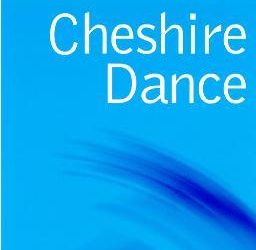Cheshire Dance provides excellent dance experiences for schools where young people and staff are encouraged to create, learn and develop.
Our approach is inclusive and person-centred, and our artists are passionate about delivering creative and engaging dance.
Cheshire Dance is a registered charity and recommended dance provider by Cheshire West, Chester and Cheshire East Councils. Cheshire Dance is also recognised nationally for its training offer for artists and teachers. In addition, it is also a regularly funded National Portfolio organisation of Arts Council England.
We ensure that a high-quality dance offer contributes to young people’s social, emotional, physical, and cultural development and we are proud to work with schools to deliver:
- Cross Curricular Dance – using dance to enhance kinaesthetic learning, promoting creative thinking alongside critical thinking to deepen students’ understanding in topic work. Examples of successful cross curricular dance projects Cheshire Dance has delivered within schools include:
- British Values
- Digital identity
- Literacy (exploring the work of specific authors and enhancing vocabulary and attainment)
- Numeracy
- Science and Nature (Magnets, The Water Cycle, conservation and Sustainable Palm Oil)
- History & heritage (including Romans and Egyptians)
- Geography (Brazil, South America, Africa, India topics through world dance styles.)
- Residential Workshops – delivering on the theme of a school’s residential and building towards a performance to be presented at the end of the residential.
- Inset Days & Professional Development for Teachers – providing practical tools for engaging children in dance and movement and sharing accessible learning strategies to translate to all abilities, ages, and those with SEN/disabilities.
- Support for curriculum design and development (including school improvement plans) and guidance on adding value to current frameworks in line with OFSTED.
Cheshire Dance can offer a wide variety of dance styles including:
- Contemporary
- Street & urban forms, including Break Dance
- World dance styles (African, Capoeira, Brazilian, Indian, etc.)
- Creative (choreography, improvisation, storytelling amongst others.)
- Cross Curriculum
We can deliver:
- Full day workshops
- Half day workshops
- Regular after school clubs
- Regular PPA or curriculum time sessions
- On residentials and longer projects
Our Dance Artists
Our artists are highly trained and experienced in performance and teaching practices and our practitioners can deliver to all ages and abilities/disabilities. Each of our artists have a full DBS and are trained in dance specific safeguarding and best practice.
Why Dance?
- Dance increases cardiovascular activity, improves strength, flexibility, balance, and stamina.
- Dance can develop the ability to communicate ideas effectively—both verbally and in movement.
- Dance is a key element of self-expression and allows a growing awareness of one’s physical self
- It improves cognitive functions with movement creating a link between a problem or idea to an outcome or solution. Thus, it can progress classroom learning and provide a platform for creative & critical thinking.
- Dance promotes sociability through working together and celebrating within the community; it can heighten resilience and boost positive mental health.
- Dance is an effective way to engage all ages, abilities, and genders.
What schools say:
“We have loved having Cheshire Dance in school. They are professional and understanding of the current climate and are constantly providing unique ways to bring dance to life in school, whilst keeping safety as a priority. The children have made so much progress in dance and the teachers have valued the expert coaching to help inform their own teaching. Thank you!”
Grange Community Primary School, Winsford, December 2020
“Best Five Weeks of My Life. Amazing. Brilliant. Worth Waiting For. I Don’t Want It To End. One Of The Best Experiences I’ve Ever Had!”
Year 5 Pupils, December 2020
“Having the interpretation of the British Values Agenda through a cultural partner, as opposed to an educational interpretation, allowed for an enriched and alternative approach to tackling how delivery of this agenda could be translated into the classroom.”
Geraldine Redhead, Sandbach Primary Academy
